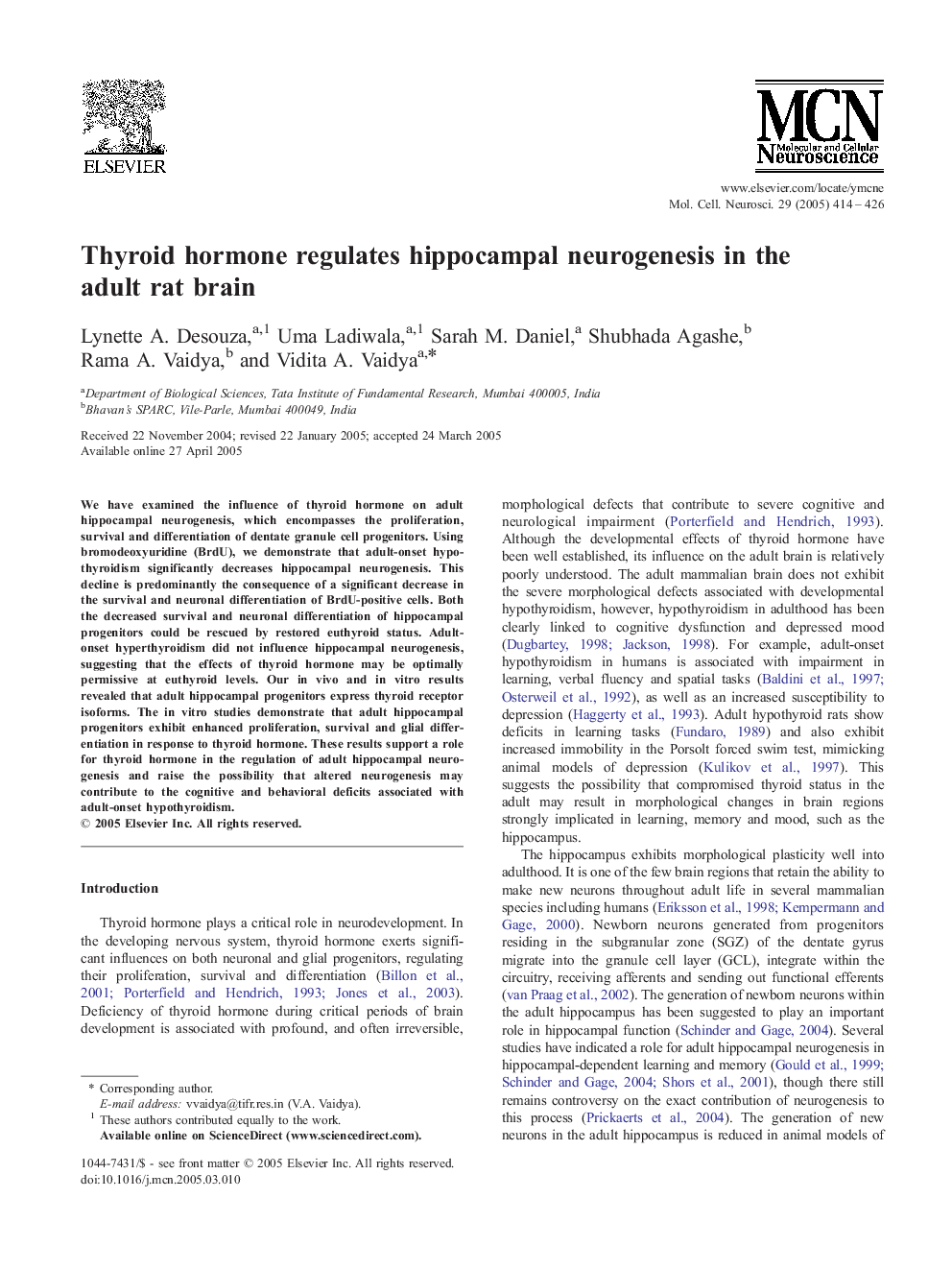| Article ID | Journal | Published Year | Pages | File Type |
|---|---|---|---|---|
| 10956891 | Molecular and Cellular Neuroscience | 2005 | 13 Pages |
Abstract
We have examined the influence of thyroid hormone on adult hippocampal neurogenesis, which encompasses the proliferation, survival and differentiation of dentate granule cell progenitors. Using bromodeoxyuridine (BrdU), we demonstrate that adult-onset hypothyroidism significantly decreases hippocampal neurogenesis. This decline is predominantly the consequence of a significant decrease in the survival and neuronal differentiation of BrdU-positive cells. Both the decreased survival and neuronal differentiation of hippocampal progenitors could be rescued by restored euthyroid status. Adult-onset hyperthyroidism did not influence hippocampal neurogenesis, suggesting that the effects of thyroid hormone may be optimally permissive at euthyroid levels. Our in vivo and in vitro results revealed that adult hippocampal progenitors express thyroid receptor isoforms. The in vitro studies demonstrate that adult hippocampal progenitors exhibit enhanced proliferation, survival and glial differentiation in response to thyroid hormone. These results support a role for thyroid hormone in the regulation of adult hippocampal neurogenesis and raise the possibility that altered neurogenesis may contribute to the cognitive and behavioral deficits associated with adult-onset hypothyroidism.
Related Topics
Life Sciences
Biochemistry, Genetics and Molecular Biology
Cell Biology
Authors
Lynette A. Desouza, Uma Ladiwala, Sarah M. Daniel, Shubhada Agashe, Rama A. Vaidya, Vidita A. Vaidya,
